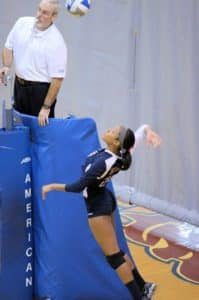
Briefly describe the events leading up to your diagnosis at age 18.
It started when I got blood drawn in order to start taking Accutane, an oral medication that treats acne. When my results returned, I found out that my iron levels were very low. I was then sent to a Hematologist and instructed to take iron pills. A year later I returned to the hematologist and nothing had changed. My doctor took many blood samples to try to discover why my blood counts were so low, but to no success. Eventually, my doctor suggested I have a bone marrow biopsy to finally arrive at the culprit of the problem. My bone marrow biopsy results revealed that I did have Type 1 Gaucher disease (GD); I have now known about my diagnosis for 5 years.
What has been the biggest challenge for you living with Gaucher disease?
Certainly the biggest challenges were the symptoms. I grew up my entire life with a “big stomach” which I later found out was due to my enlarged spleen. It wasn’t fun to constantly have to suck in my stomach to make it look “normal” and dread having to wear swimsuits or fitted clothes. I also had frequent nosebleeds, some of which would last for hours at a time. I would bruise easily and feel tired all the time. I assumed my bruising and fatigue came from playing sports, but I was wrong. After my diagnosis, my symptoms increasingly went away, but it became a hassle having to visit the hospital every two weeks for infusions. I found myself missing sports practices and arriving late to class because of my infusion schedule. Now that I am taking Cerdelga, the oral medication to treat Gaucher Disease, I do not have to deal with the symptoms or scheduling infusions every other week which has made living with the disease significantly easier.
Please describe your care team and the impact they have on your life?
I am incredibly thankful for my care team! I must first thank my family for being a wonderful support system for me. They are always so accommodating of my needs and understand when I may feel more tired than they. My family was there for me when I was diagnosed, they sat with me during infusions and were just as interested in learning more about Gaucher Disease as I was.
Also, I am so appreciative of my incredible nurses in both Baltimore and New Jersey. To my doctor, Dr. Halpern, and my nurses in NJ at Morristown Medical Center–Goryeb Children’s Hospital, please know that I greatly appreciate all of the years we’ve spent together. Every single nurse and doctor I worked with at that hospital were nothing but pleasant. They made coming in for biweekly infusions surprisingly enjoyable and were always accommodating to any of my needs. Any time I walked through their doors they welcomed me with warm smiles, hugs and laughter; it was like having 6 moms take care of me! I loved every minute of the 4 years I spent with you.
To my doctor, Dr. Wiley, and my nurses in Baltimore at Sinai Hospital, I greatly appreciate you all as well! Dr. Wiley is the best hematologist I could have asked for. Not only is he an expert in the field, he takes genuine interest in treating his patients and greatly helped me throughout my diagnosis and continues to well after. My nurses at Sinai were always so kind and accommodating; they made my infusion experience as pleasant as possible and for that I am truly grateful.
I also want to thank my close friends who have been supportive of me since they found out about my diagnosis. Thank you for never treating me differently yet being compassionate and understanding. I am incredibly thankful and blessed for every single person on my care team. Each and every one of them have made living with Gaucher Disease so much easier and we are all learning and growing along the way. Words cannot express how thankful I am that I do not have to go through this alone and I have many people who I can lean on whenever I need to.
What are some ways you manage living with Gaucher disease?
When I was getting infusions, I had to manage my infusion schedule, trying my best to maintain its consistency. It was sometimes tedious having to plan things around my infusion schedule, but it was something I grew to get used to; it simply became a part of my regular schedule.

It is important though, to always remain positive and optimistic. Every day I count my blessings; I am forever thankful for my health and that I am able to live a “normal” life despite my illness. I also remain thankful for the treatment options that exist for GD and am optimistic that more options will become available for people who will be diagnosed in the future.
What would you tell someone who has just been diagnosed with Gaucher disease?
I would tell someone who has just been diagnosed that they are going to be okay. I know that it can be scary, but you can handle it! I would tell them that it is important to explore all the treatment options to determine what is best for them. I would encourage them to have open conversations with their doctors and nurses and not to do anything they feel uncomfortable with. Most importantly, I would encourage them to connect with other Gaucher patients as soon as possible through places like the NGF website, the Gaucher Disease Facebook page, gaucherstories.wordpress.com, or any other websites or organizations they like (something I wish I had done sooner, instead of 5 years in). Lastly, I would encourage them to get a case manager (for example, a Genzyme case manager) to help them through the process.
Anything else you would like to add?
It was scary being diagnosed with GD, it is hard hearing that you have an inherited disease that is not curable. It certainly doesn’t make it any easier being told you will have to receive treatment for it for the rest of your life, among many other things. I am incredibly thankful that I do not continue to frequently experience the symptoms of GD in my daily life anymore, but by no means do I want people to think that having GD is “easy”. I am aware of the set-backs and more severe cases and types of GD; some people do not have insurance or access to treatment options; some people feel so fatigued that they cannot work normal hours or even at all; some people suffer from such chronic bone pain that it hurts to even leave their bed in the morning, just to name a few cases. I acknowledge all of those Gaucher patients and I completely understand that is not easy living with Gaucher no matter how mild or severe your case is.
With that being said, I want to add that since I do not get infusions anymore I am not physically connected with other Gaucher patients, but I do find comfort in communicating with the Gaucher family I have made online. It is important that I say family because that’s what we are. We are a small group of people and we stick together. I have met Gaucher patients from all over the world with the help of the NGF website, the GD Facebook page, and my blog site gaucherstories.wordpress.com. We answer each other’s questions, offer advice and most importantly, provide support for one another.
I would like to conclude by saying that even though being a Gaucher Disease patient is not easy it is possible! It is possible to still have fun, to play sports, weight train, have children, travel, work, or do whatever it is you want to do. Regardless of your symptoms and your treatments you can do whatever you’re passionate about.
It is important for us Gaucher patients and advocates to stick together, support one other and continue to spread awareness!